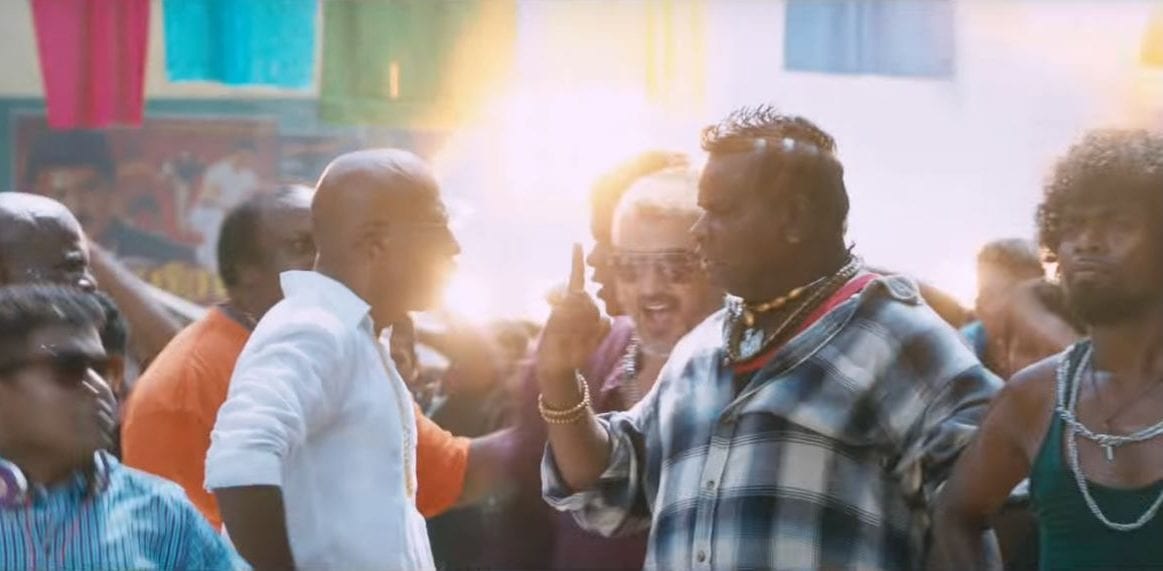
Madras slang a unique concoction of Chennai, but it is not just Tamil

Poda beimaani, somaari (get lost you cheat, lazy fellow). Innu oru daba sollamaten (I won’t say it again) and OCla kadacha vudamaaten (If I get it for free, I won’t let it go).
The lines above are in Madras bashai, or a slang that is unique to Chennai. However, it is not Tamil alone, but a mix of Urdu, Telugu and even English.
The lingo traces its roots to the British Raj, while there is also a possibility of predating British rule. For, there are no official records of the language’s origin, says Padmapriya Bhaskaran, a historian from Chennai. “We were trading even during the 6th century and we have Roman and Japanese coins unearthed from that era. So, unless we find an inscription to corroborate it, we do not know how old the language is,” she says.
The original inhabitants of the city, the fishermen and a section of the population like rickshaw pullers and vegetable sellers probably sowed the seeds of the slang. Through the years, it has been associated with the lower rung of the society.
Also read: The question of Tamil vs Sanskrit still a political hot potato
“Unlike the kongu slang or the Madurai slang that was used by everyone from the respective regions, Madras lingo’s usage has been limited. The labourers and workers, apart from vendors who were interacting with a mix of people incorporated a cross section of languages, forming a unique vocabulary,” Padmapriya says.
She observes that Madras bashai had a carefully chosen set of words that were profound. “Imagine calling someone a beimaani (originating from the Urdu word beimaan meaning dishonest). Or for that matter calling someone kasumalam (which actually is Kashmalam meaning garbage in Sanskrit). These words are restricted in their usage in Madras lingo, you do not find them in any other form of Tamil spoken elsewhere,” she says.
The deep impact of English is evident from the use of words like OC (on company service, indicating it is free) or OB (off beat, meaning to waste time) and in dubakkur (meaning stupid).
Tamil films’ tryst with Madras slang
From the legendary NS Krishnan to Chandrababu, who tapped the language extensively using several memorably roles, and to Mayilsamy of today, Madras slang has been captured in varied proportions from the 40s till date.
Film historian Mohan Raman says the oldest and the first reference has to be in the song Kindhanaar Kaalatchebam by NS Krishnan, where he shows his surprise at the language being spoken in Madras with words like naina (inspired from Telugu nana meaning father) to address people.
Also read: Why south Indian films can’t shake off the queer phobia
“From then, the latest reference in movies has been in the song Aaluma Doluma from the film Vedalam starring Ajith. The language in the song is nowhere similar to that of Vaa Vathiyar Ootanda (from the film Bommalattam starring Cho Ramaswamy and Manorama). It is clear that the language has evolved through the years and has changed with newer words,” he says.
Madras lingo has also lived through the works of actors like Loosu Mohan and Thengai Srinivasan whose famous role as a Madras slang-speaking tea vendor pretending to be a godman in Kasethan Kadavulada is considered to be one of the finest comedy portrayals in Tamil cinema. Sivaji Ganesan has spoken the slang in Bale Pandiya and so has Kamal Haasan in several of his movies.
Need to document
Raman rues the lack of documentation of the slang by language experts. “The profile of the labour class that makes the language has changed. Someday, we might have Odiya or Bihari words creeping in. Sadly, there are no records of it or any interest in documenting it” he stresses.
When you look at a city’s development, especially when it is multilingual and multi-culture, language is the marker, points out V Arasu, former head of department, Tamil Language, University of Madras.
“Unfortunately, in Chennai, we haven’t focused on the linguistic aspect of Madras slang. It will be an important record to maintain because the language is believed to have developed along with the city,” he says.
Padmapriya says that the changing labour scape is also causing the language to vanish slowly. “Over time, the vendor on the street speaking it has vanished. We probably would be left only with fewer words here and there,” she says.


